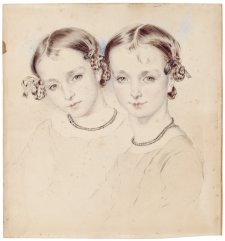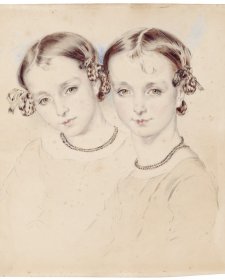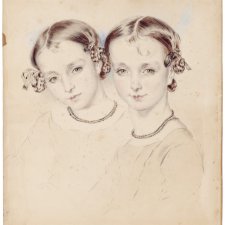Henry Hopkins (1787–1870), businessman and philanthropist, opened his first shop on Elizabeth Street, Hobart, soon after arriving in the colony in September 1822. Having worked as a wool classer in England, Hopkins became involved in the development of the wool trade and is credited with the first export of wool from the colony. By the late 1830s had expanded his wool growing interests into Victoria. In addition, Hopkins served as a magistrate, on the Legislative Council, and as a director of bodies such as the Van Diemen's Land Bank and the Hobart Gas Company. He was also a generous donor to schools, missionary societies and the church, donating funds for the building of St David's Cathedral and the All Saints' Anglican Church in Hobart. On his death at 84 he was commended as 'the special patron of all our religious, educational and charitable institutions … his liberality in this direction has made his name famous throughout Australasia and Great Britain'.
English artist Thomas Griffiths Wainewright squandered his inheritance and was sentenced to transportation for forgery in 1837. Due to good behaviour, he was enabled to pursue his art practice in Hobart. Granted a conditional pardon in 1846, he died a year later, having created more than 50 of the finest Australian portraits of the period.
Purchased with funds provided by L Gordon Darling AC CMG 2013
L Gordon Darling AC CMG (38 portraits supported)
Marilyn Darling AC (33 portraits supported)



On one level The Companion talks about the most famous and frontline Australians, but on another it tells us about ourselves.



Joanna Gilmour explores the life of a colonial portrait artist, writer and rogue Thomas Griffiths Wainewright.



Michael Desmond examines the career of the eighteenth-century suspected poisoner and portrait artist Thomas Griffiths Wainewright.